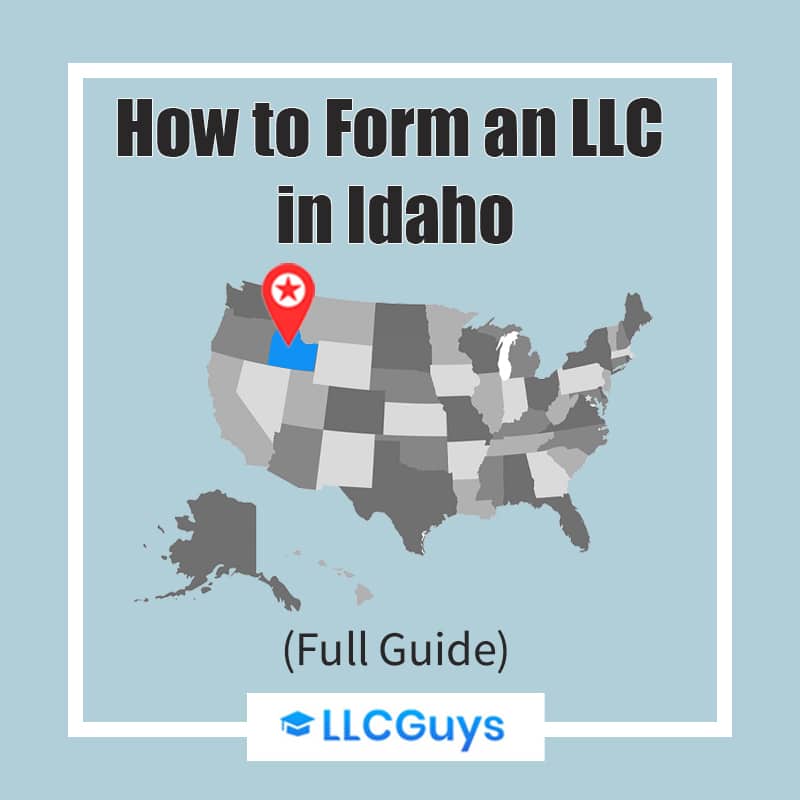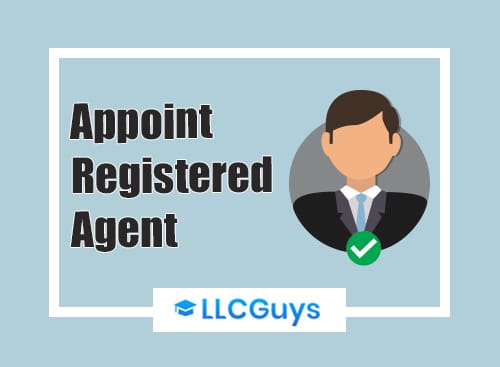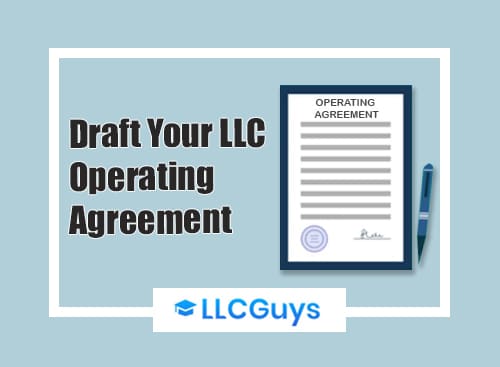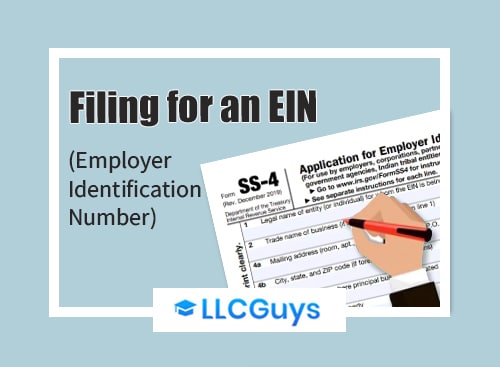Idaho LLC (6-Step Guide) – How to Easily Form an LLC in Idaho
Start an LLC in Idaho With Help of Professionals [jump to offer]

If you are considering starting a business or upgrading an old one, then don’t overlook an Idaho LLC. With an LLC, your business can often benefit from a reduced tax burden, and you can operate without fear of losing your personal assets in case of a lawsuit or business failure.
Plus, you can feel confident in choosing to form an LLC in Idaho because this state has frequently been chosen as a favorite by small business owners. With business-friendly regulations, low taxes, and low costs of doing business, this state is a great choice for any small business owner or entrepreneur.
If you want to skip the hassle of starting an Idaho LLC yourself, consider using professional help:
Why Would You Want an Idaho LLC?
There are many reasons to choose an Idaho LLC, and some of the biggest reasons include.
Quick Idaho LLC Pros & Cons
We get it; you are busy and may not have the time to carefully consider every pro and con there is to form an LLC in Idaho. That is why we have a quick list of them here for you to consider.
Also, here’s a guide of the full costs associated with Idaho LLC.
Pros of Forming an Idaho LLC
Unsurprisingly there are a number of benefits to an Idaho LLC but let’s take a look at a few of the biggest. These include:
Even if the operating agreement doesn’t contain such a provision, anyone receiving a transfer of right is not entitled to become a member. They will only receive any financial distributions the member would have. The only way to become a member is with the consent of the other members.
A court could choose to foreclose upon the lien placed against the interest and require the interest to be sold, but again that would only entitle the purchaser to financial disbursements.
Additionally, if a member chooses to make an assignment to benefit a creditor, does not contest the appointment of others over their property, or becomes a debtor in bankruptcy, they will cease to be a member.
Cons of Forming an Idaho LLC
As you have seen, there are definitely advantages to forming an Idaho LLC, but like with just about any major decision, there are some cons to consider. Some of these include:
Six Steps to Creating Your Idaho LLC
Now that you know why you would want an Idaho LLC and you have had a chance to consider the pros and cons, hopefully, you have decided that you have found the business structure for you. If so, great! Now we can get started with the fun part, forming your Idaho LLC, and here’s how.
Step 1: Choose a Name for Your Idaho LLC

The first step to forming your Idaho LLC is to pick a great name. The best name will give customers an idea of what product or services you provide while being catchy and, perhaps most importantly, unique. The Idaho Secretary of State will turn down any name that is not easily distinguishable from already registered names.
Also, after you choose the base of your name, you must end it with a limited liability company, limited company, or LLC to let the public know what type of business it is. You cannot use terms such as Inc. as this could confuse others by making it appear as if your business is a different type of entity.
Searching for an Available Name
In order to see if a name is available, you can perform a name search on the Idaho Secretary of State website using the Business Search tool. You can use keywords from the name you chose to ensure that it is not too close to any existing name.
You do not want the name to be turned down when you go to file your Certificate of Organization. Also, it is certainly going to be a pain if you have to go back later and file an amendment to change your official name, so make sure you choose one you will be satisfied with.
Another option is to file an assumed business name with the Idaho Secretary of State that will allow your business to operate under your official legal name. To do this, go to the Idaho SOSBiz website, create an account, and file online. This will cost $25, and you can file in person, but this will cost an extra $20 manual processing fee in addition to the filing fee.
Step 2: Choose an Idaho Registered Agent

After choosing your Idaho LLC’s name, it is time to choose who will serve as your registered agent. The registered agent of your business is the one who will serve to receive legal correspondence on behalf of your business. You are legally required to choose a registered agent who resides in and has a valid street address located in Idaho. P.O. Boxes are not an option as documents such as Service of Process must be delivered personally. For this reason, the registered agent must be available to receive correspondence at any time during normal business hours.
Once you select a registered agent, all legal correspondence from the state will be sent to their address, and the registered agent will typically deliver it to the owner of the business. The exception to this will be if you select yourself to serve as the registered agent for your business. This is an option as well as choosing another individual from your business or even a friend or family member.
However, generally, the best way to go about it is to hire a professional registered agent service. This way, you can be certain they will always be available during regular business hours and deliver mail to you appropriately. This also helps to keep your address private if you work from home because then you can use the service’s address on public records.
Step 3: File Your Certificate of Organization

Your next step is to file your LLC’s Certificate of Organization (here’s an extended guide). These crucial documents are the final step in making your business a legal reality by filing them with the Idaho Secretary of State. In order to fill out this form, you will need the name of your business, its mailing address, its members’ names, and the registered agent.
You can file your Certificate of Organization online or by mail. However, the online process will be quicker and easier. Either method you choose will require paying a $100 filing fee; however, if you choose to file by mail, there will be an additional $20 manual processing fee.
Filing Your Certificate of Organization Online
In order to file online, go to the Idaho SOSBiz website and create an account. This will allow you to file for your business online. This will generally result in a quick response and approval.
Filing Your Certificate of Organization by Mail
You also have the option of filing by mail. For this, simply fill out the form “Filing Your Certificate of Organization Online” For this, simply fill out the form on your computer, print it, and mail it along with the filing and manual processing fee to:
Office of the Secretary of State 450 N 4th Street
P.O. Box 83720
Boise ID 83720-008
Generally, this process will take approximately 5-10 business days after the document is sent. However, you can opt for expedited filing for an extra $40 or even same day for $100. This still leaves the time for the documents to be delivered back and forth by mail, so often online will still be your best bet for speed.
After the Secretary of State does approve your Idaho LLC, confirmation will be sent by mail along with a stamped copy of your Certificate of Organization. You will also receive a filing receipt sent to the email address you gave during filing.
Step 4: Create Your Idaho LLC Operating Agreement

Now it’s time to create an operating agreement for your business. This agreement between any and all members of your Idaho LLC contains the amount of ownership of each of its members, their rights and responsibilities, and additional information regarding how your business will be run and its profits and losses will be divided.
An operating agreement often seems unnecessary when you are just getting started, but when you are working with others, it is absolutely needed. An operating agreement prevents and settles arguments and saves members time which they can spend keeping the business running smoothly.
Here’s our full guide and templated download for an Operating Agreement.
Plus, banks often require an LLC’s operating agreement as a condition of opening a business bank account or receiving a loan. So, it is a good idea to complete an operating agreement now and get everything organized.
Let’s take a closer look at some of the details that should be included in an operating agreement.
No matter what you choose, it should clearly be set forth and agreed upon by every member. Then write it down in your operating agreement.
Next, what amount of members, or ownership percentage, if it is being weighted by ownership, is needed for a motion to pass? This should be set forward in great detail to prevent arguments down the line.
However, no matter what method of management you wish, it will need to be set forth in your operating agreement along with the rights and responsibilities of both the members and any managers. If you choose to have any managers, it is also important to address what will happen if a dispute arises between any or all members and the managers.
These rules should include how their share of ownership will be distributed, whether any special notice is required, and if the member can expect some form of compensation. By discussing this and setting forth rules, you can ensure that your LLC will continue even if a member leaves.
This may include allowing a member the right to take the idea of the business and continue with it on their own even after the LLC is dissolved. This can be an unpleasant thing to think about and may even seem unnecessary. However, without an agreed-upon plan, if dissolution ever does become necessary, it can result in a lot of fighting and even litigation.
Step 5: Acquire Your Employer Identification Number (EIN)

Now that you have legally registered as an LLC and you have an operating agreement, one of the first things you should consider doing next is filing for an EIN.
An EIN acts similarly to your Social Security Number and will be used to identify your business for tax purposes. Filing for an EIN is sometimes not required; however, if you wish to hire employees, register with the Idaho Tax Commission, or open a business bank account, you better start registering for it now.
In order to file for your EIN, you will need to include a “contact person” from your LLC to be designated as a responsible party for the application.
How To Apply
You can apply for an EIN online, by mail, or by fax. Also, if you are applying from an overseas application, the telephone is possible. Anyone using a Social Security Number to apply can do so online at the IRS website and complete the process in only a few minutes.
Another option is to complete Form SS-4, print it out, and mail it into the IRS at:
Internal Revenue Service
Attn: EIN Operation
Cincinnati, OH 45999
If you choose to fax the application, you will still need to fill out and print Form SS-4 and then fax it to (855) 641-6935. To file by phone for overseas applicants, call 267-941-1099 from 6 am to 11 pm Eastern Time Monday through Friday.
For a full EIN guide – read here.
Step 6: Open a Business Bank Account in Idaho

The last step is an important one, opening a business bank account. A business bank account will not only help your business appear more professional and make your bookkeeping easier, but it is also necessary for effectively maintaining your business’s limited liability. Let’s take a look at how it can help with both of these things.
Easier Bookkeeping
With many entrepreneurs just getting started, one of the hardest things to do is handle the bookkeeping. Without using a business bank account but just using a personal account, it is nearly impossible to completely separate your business and personal finances. This can make tracking business data nearly impossible.
By opening a business bank account, you can easily separate the two and keep track of profit, expenses, and budgets. This will provide a clear overview of what you are making and what you are spending.
This will make it much easier to manage and track everything for taxes and deductions at the end of the year. It will also make it a lot less painful if your business is ever audited.
Retaining Limited Liability
Clearly, one of the biggest reasons for forming an LLC is the limited liability it provides. Opening a business bank account goes a long way to protecting this reduced liability.
Legally an LLC is a separate entity from its owners, and as a result, they cannot be held accountable for the business’s debts. But, courts will sometimes allow creditors to do just this in an act called “piercing the veil.” This will allow creditors to seize the personal assets of the owners to satisfy business debts.
A court will typically only allow this if the LLC is found to have violated rules for the formation and governance of an LLC. Small companies are often the most vulnerable to this, due to their small size and often lack of following basic business practices.
One of the most common mistakes small businesses make is mixing, you guessed it, personal and business assets. This is something that is forbidden if you wish to treat an LLC as a separate entity. If you personally use business assets, the court will probably decide that your LLC was not a separate entity and likely allow creditors to seek relief from your personal assets. One of the best ways to prevent this is to maintain a business bank account solely used for business funds.
These accounts are also important if you ever wish to receive a business loan, as most will not allow funds to be deposited in personal accounts. Also, they are necessary if you wish to receive credit card payments for your products or services.
Steps for Growing and Maintaining Your Idaho LLC
Now that you have formed your Idaho LLC, it is time to ensure it stays on the right side of the law and help it grow. Here are a few steps to take next.
1. Filing an Annual Report

All LLCs in Idaho are required to file an annual report every year. Unlike in many states, filing an annual report in Idaho is free. But, if you do not file your annual report, there could be severe penalties.
Should you fail to file your annual report, your LLC could be administratively dissolved by the Idaho Secretary of State, and your business could be shut down. You’ll find this to be a big problem since reopening your LLC is very difficult. It is not only quite expensive but time-consuming as well. So, it pays to make sure you file your annual report.
An LLC needs to file its annual report every year by the end of the month in which the LLC was formed, starting a year after the LLC was formed. You can file this report on the Idaho Secretary of State’s Website, but you’ll need to have a SOSBiz account to do so.
2. Pay Your Taxes

The only tax your LLC itself will have to worry about is collecting sales tax on any products or services it sells. Although most businesses have to pay federal, state, and local income taxes, as an LLC, your business is a pass-through entity. This means you won’t have to worry about paying taxes for your business. Instead, any income your business earns will pass through your business to the individual member’s federal, state, and local tax returns.
There are different tax forms the members may be required to file depending on how your LLC has chosen to be taxed. There is no one tax classification that your LLC must use.
Your LLC could choose to be taxed as a C-corporation or even an S- corporation to help you and the other members of your LLC save on self-employment taxes. Or your LLC could decide to be taxed as a partnership. In this case, you would need to have your LLC file a Partnership Return; to do this, you would need to use Form 1065. Every member will also receive a K-1, which they will use when filling out their individual tax returns. To be sure you are choosing the best tax classification for your LLC, it would probably be wise to consult a tax professional for advice.
If you have a retail business, you must register your business for sales tax and then have your business collect sales taxes. To do this, you’ll need to apply for a seller’s permit before starting a business. You can find out more about this permit and how to obtain it on the Idaho State Tax Commission webpage.
3. Ensure You Have All Necessary Permits and Licenses

Now that you have a legally registered LLC with the Idaho Secretary of State, make sure you have all of the licenses and permits you need to run your business. Often times a number of different licenses and permits are needed, including a business license and seller’s permit. However, depending on the product or service your LLC provides, these can range widely.
Companies that provide physical therapy will require a very different range of permits from a real estate company in order to do business legally. So, make sure to check what permits and licenses your business needs. You can find more information about licenses and permits with the state for your business at the Idaho Division of Occupational and Professional Licenses website. For local permits and licenses, check with your local county and municipality.
Keeping up to date with all professional licensure and permits is important. This is required in order to maintain a Certificate of Good Standing, which is often important to do business in the state of Idaho.
Form an Idaho LLC With Professional Help Today
Forming an LLC is a great idea considering all the advantages it will give you. But, the process can be difficult as well as very time-consuming. But, you don’t have to do all the work yourself. There are plenty of LLC formation companies ready to help you, and we will discuss two of the best.
#1: Creating an LLC in ID With ZenBusiness
ZenBusiness is one of the newer LLC formation companies. But, it has become one of the most popular LLC formation companies due to its great customer service along with the wide variety of services it provides at reasonable prices. ZenBusiness will even file your annual report for you and provide your LLC with a free operating agreement with any of their packages.
Here’s our full review of ZenBusiness.
#2: Creating an LLC in ID With Incfile
Incfile is an excellent choice for an LLC formation service to help you form your LLC. You’ll especially appreciate Incfile if you’re on a budget as they have a free option. All you have to pay is the state fees. In addition to filing your Certificate of Organization to form your LLC, Incfile will provide you with a year of free registered agent service.
Here’s our full review of IncFile.
Final Thoughts
An Idaho LLC offers many benefits that can help your business to survive and thrive, all while protecting your personal assets. Plus, it does this all in one of the fastest-growing, most small business-friendly state economies in the country. Now that you know all the benefits that this structure can offer as well as how to form it, don’t hesitate to form your Idaho LLC.
Learn How to Form an LLC in Any U.S. State:
Alabama
Alaska
Arizona
Arkansas
California
Colorado
Connecticut
Delaware
Florida
Georgia
Hawaii
Idaho
Illinois
Indiana
Iowa
Kansas
Kentucky
Get Some More Knowledge About Business & LLCs





